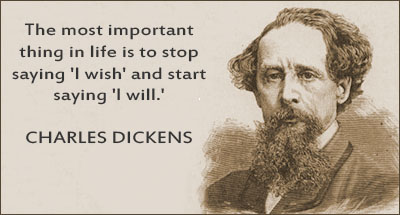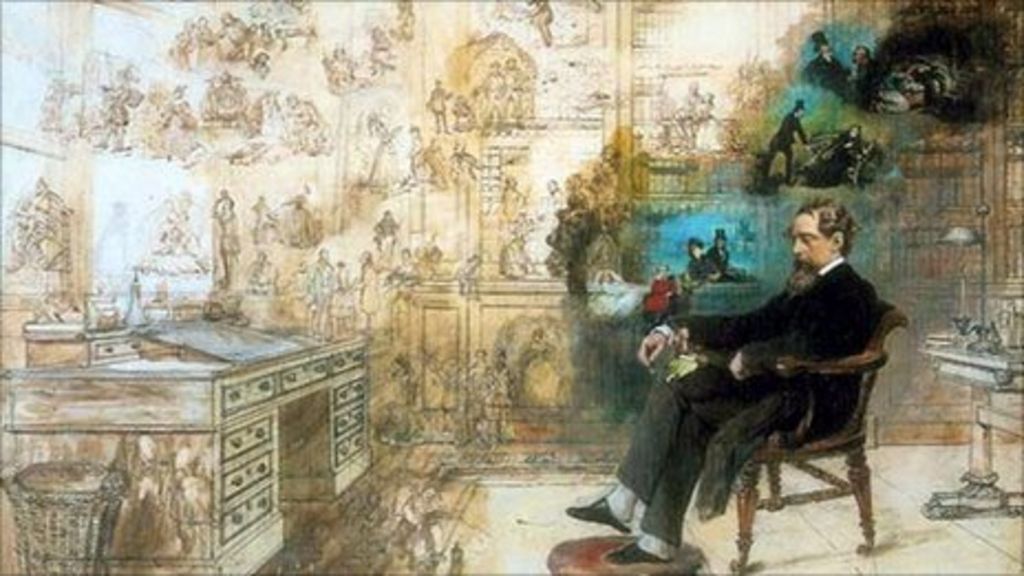Welcome to DU!
The truly grassroots left-of-center political community where regular people, not algorithms, drive the discussions and set the standards.
Join the community:
Create a free account
Support DU (and get rid of ads!):
Become a Star Member
Latest Breaking News
Editorials & Other Articles
General Discussion
The DU Lounge
All Forums
Issue Forums
Culture Forums
Alliance Forums
Region Forums
Support Forums
Help & Search
World History
Related: About this forumWhy Should We Read Charles Dickens? Video Essay
For all the fun he had with human foibles, Dickens was also a social realist, the greatest influence on later literary naturalism, who “shed light on how his society’s most invisible people lived.” Unlike many novelists, in his own time and ours, Dickens had the personal experience of living in such conditions to draw on for his authentic portrayals.
Nonetheless, Dickens’ did not allow his enormous popular success to blunt his compassion and concern for the plight of working people and the poor and socially marginalized. The engrossing, highly entertaining plots and characters in his novels are always pressed into service.
We might call his motives political, but the term is too often pejorative. The "Dickensian" mode is a humanist one. Dickens’ did not push specific ideological agendas; he tried, as Alain de Botton says in his introductory video above, “to get us interested in some pretty serious things: the evils of an industrializing society, the working conditions in factories, child labor, vicious social snobbery, the maddening inefficiencies of government bureaucracy.”
He tried, in other words, to move his readers to care about the people around them. What they chose to do with that care was, of course, then, as now, up to them.
>More: openculture.com, Dec. 26, 2017
9 replies
 = new reply since forum marked as read
Highlight:
NoneDon't highlight anything
5 newestHighlight 5 most recent replies
= new reply since forum marked as read
Highlight:
NoneDon't highlight anything
5 newestHighlight 5 most recent replies
Why Should We Read Charles Dickens? Video Essay (Original Post)
appalachiablue
Dec 2017
OP
I found it a good piece on Dickens' creative literary genius and his methods
appalachiablue
Dec 2017
#3
Amen. Keep it together- or it's to the workhouse, maybe Tied to the Whipping Post. No joke.
appalachiablue
Dec 2017
#7
Achilleaze
(15,543 posts)1. Thank you for posting this
appalachiablue
(43,774 posts)3. I found it a good piece on Dickens' creative literary genius and his methods
of illustrating Industrial Age social ills though writing, public speaking with theatrical aspects which appealed to a wide sympathetic following.
Harriet Beecher Stowe's 1852 anti-slavery novel, 'Uncle Tom's Cabin' sold a million copies the first year in England, confirming the significance of literature in leading to social change. Same for Frederick Douglass' 1845 abolitionist autobiography for which he gave readings and speeches in the US, Ireland and England.

Squinch
(58,025 posts)2. This is great. Thank you.
appalachiablue
(43,774 posts)4. My pleasure. What a tremendous writer he was, especially of the times.
Wish I'd visited his London House Museum, somehow didn't know of it until after living & travelling there. Next time, hah!
~ Dickens Dreams and Imagination, with Characters and Stories ~

Orsino
(37,428 posts)5. So we don't forget what an out-of-control aristocracy means for the rest of us.
Misery.
appalachiablue
(43,774 posts)7. Amen. Keep it together- or it's to the workhouse, maybe Tied to the Whipping Post. No joke.

- New Castle County, Delaware Poorhouse Pillory and Whipping Post, 1897
appalachiablue
(43,774 posts)6. British Workhouse and Inmates

- British workhouse, inmates
- Concerning the poor at Xmas: "Are there no prisons? workhouses?.. decrease the surplus population,"
Ebenezer Scrooge, 'A Christmas Carol' by Charles Dickens.
Dickens visited New York City mid-19th century and was shocked by deplorable conditions in neighborhoods & slums.

- New York State Poorhouse/Almshouse

bronxiteforever
(11,031 posts)8. Outstanding! Thank you for posting. N/t
appalachiablue
(43,774 posts)9. For sure, happy holidays!